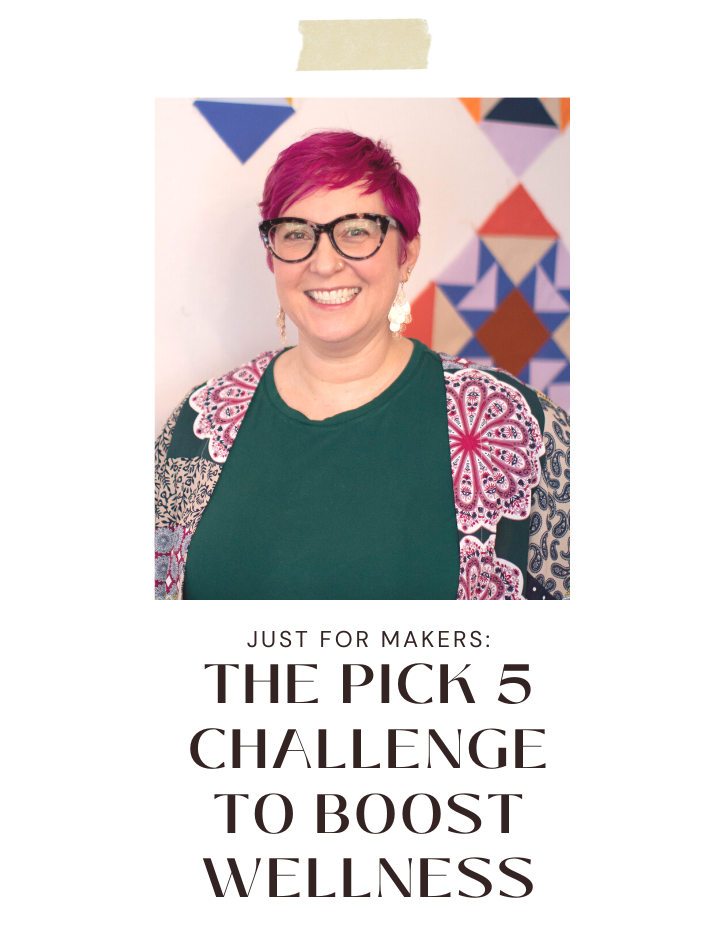Have you ever wanted to learn something, but were afraid to do it on your own? If so, you need to try accountability partnerships! (Lots of us who use these call ourselves an accountability buddy, or accountabilibuddies, if you wanna get weird with it…) Today, I’m sharing everything I know about how to be a good accountability buddy.
What is an accountability buddy?
An accountability partnership is an agreement between two people (occasionally more) to pursue a common goal, and to support each other with compassion and grace.
In accountability relationships, participating partners set some guidelines on:
- What goals they will pursue
- What kinds of help they need to be successful
- How they will hold each other accountable
- What to do if there’s a miscommunication
- When and how to dissolve the partnership
I’ll dive into these bullet points below, but first, a distinction:

What’s the difference between a coach and an accountability buddy?
As a wellness coach for makers, many of my clients come to me wanting some level of accountability. I’m always game for that! For our accountability work to be successful, we set some guidelines:
- What their goals are, and for which aspects of those goals do they want accountability
- How often they’ll check in with me on their progress
- Whether or not I’ll check on them if I don’t receive an update at the specified time
- The language and tone I’ll use to address their goals, if they’re not following through with their commitments (like, will I offer them more heart or more heat?)
- What steps will occur if they fall behind
- How they’ll let me know if they want to make changes
Setting up these specifics is REALLY important in coaching work. And you can use this framework for non-coaching accountability work, too!
One-sided vs. reciprocal
You may have noticed that in coaching, accountability work is one-sided. I’m the one holding my clients accountable, not the other way around.
But if you’re not working with a coach, accountability work is mutual… and it needs to be relatively equal. If one partner is always showing up and the other’s always dragging their feet, then the partnership will crumble.
So if you’re considering pursuing accountability work with someone other than a coach (or therapist or other professional), make sure that before you do anything else, you’re willing to spell out all of those details with your buddy.
How to choose an accountability buddy
A great accountability buddy is someone who shares some common goals, is available to meet on your schedule, is enthusiastic about making change, and has already demonstrated some ability to be a go-getter.
If you’re looking for an accountability buddy to work on business goals with, choose someone who’s not a competitor. For example, I’m currently pursuing accountability work with a social media consultant. We don’t compete for clients, but we’re both excited to help each other learn on a specific topic, and we’re available to meet easily during the week.
Successful accountability partnerships include two people who share some of the same values. In my example, my partner has a strong spiritual foundation, is very creative, has a sense of adventure, and is generous. In these ways we are equally aligned! What’s really interesting is that we:
- Vary greatly in age
- Are on different spiritual paths
- Live in different parts of the country
- Differ in our household makeup: She has kids and I don’t
And yet it works! You can be very different from your buddy in some ways, but if you’re aligned in ways that connect to your mutual goals, it will work great.

How to be a good accountability buddy in the moment
Once you’ve chosen an accountability buddy, it’s important to set guidelines for how you’ll hold each other accountable. It’s essential to be clear, and get everything in writing if possible, so there’s no confusion.
Parameters to set include:
- What you’d like to be held accountable on (my buddy and I verbalize these week to week, and check in at least once a week on them)
- When and how often you’ll check in with your buddy proactively
- How often you want your buddy to check on your progress
- Which communication method works best (email, text, DMs, etc.)
- What action you want your accountability buddy to take if you don’t honor your commitment
- The things you’ll do if your buddy doesn’t hold up their end of the bargain
- What tone/language y’all will use with each other if things get heated/emotional/complex
I know that might seem like a lot, but setting these up front is key. After a couple meetings, you won’t need to get as detailed… you’ll find your flow.
And if you DON’T find your flow and each meeting is really difficult, the partnership might not be set up properly, or you might need to dissolve it and find a different partner. If this happens, it is NOT a failure. Approach it as a learning opportunity, asking yourself questions like how might I approach this differently next time, or what red flags did I ignore in our first meeting, or even am I ready to do this work right now?
Communicating your needs is key
Being an accountability buddy requires a good amount of vulnerability. To be successful, you’ll need to be real with your partner. Tell them:
- What you want to learn
- Things/outcomes you’re afraid of
- Specific words and kinds of language that trigger you
- Some things you don’t want to address in your partnership
- What has and hasn’t worked for you in the past
In turn, your buddy should be able to share all of this as well. The longer you support each other, the closer you’ll get… it’s unusual to be able to be fully vulnerable at the first meeting, but with trust comes more openness.
And if something isn’t working, you also need to share that with your accountability partner. Be honest with them if something isn’t working well, and ask them how you might work together to make a change.
How does accountability work?
Accountability works best when it’s reciprocal, compassionate, and specific.
Reciprocal: You both feel that each other is holding up their end of the agreement. You’re each coming to meetings with information, updates, and energy. You’re each performing the accountability actions you agreed to. You’re each being kind and compassionate when the other falls short of their goals.
Compassionate: You both approach each other with a sense of grace and patience when things go wrong, because you know you’re not perfect, either. You ask each other how you can brainstorm ideas that will result in greater results, all while noting that progress = progress, not perfection. You’re intentional in praising each others’ successes, and honoring each others’ efforts even if goals aren’t met.
Specific: You both use language that points to specific things you’re learning, actions you’re taking, feelings you’re experiencing, and ways you’re being. You use intentional language to discuss goals, frustrations, needs, fears. etc.

What happens if we have an issue?
In any relationship, there will be challenges — including accountability partnerships. A good accountability buddy will practice thoughtful communication when things get rocky.
If something isn’t working, it’s important to be clear. If you have a meeting coming up soon, then you might want to wait until then to discuss the issue. But if it’s going to be a week or so before you meet again, you might want to reach out before then to have a conversation.
Written conversations (like emails or texts) can lack tone and aren’t always the best for conveying challenges — even for stellar writers! It’s possible your accountability buddy could misread something in writing that would be extra clear in conversation. Whenever possible, talk on the phone or on video. (Or exchange voice notes, if that’s your usual method.)
Share what’s going on, how it’s affecting you, and what you would like to be different. Be as specific as possible, and operate from the assumption your accountability partner has your back (or at least wants to).
An example of a conversation to handle an issue:
For example, imagine you had an accountability buddy who was supposed to text you every night after dinner to see if you’ve taken your evening walk. But they miss 2 out of 7 nights a week, and that’s not working for you. You might try:
- Reminding them that your agreement was to text every night
- Asking them if there’s something that’s keeping them from remembering, and brainstorming ways to solve that distraction
- Explaining to them why it’s so important for you to have consistency
- Sensing if your buddy is ready to change to support you better
- Offering your buddy compassion and grace if they try their best to make that change
If you try this, and your buddy still can’t make it happen? Then it might be time to dissolve the partnership.
How to dissolve an accountability partnership
And if you reach a point where the accountability buddy work just isn’t paying off, and you’ve communicated your needs and tried to come to a resolution… it’s likely time to dissolve your partnership. Staying in it for fear of hurting your accountability buddy’s feelings will only lead to frustration, wasted time and resentment on your part.
Schedule a call with your accountability partner, and lay out the specifics of your frustration. Acknowledge the work they have been able to help you with. Share your wishes for their success. And explain that since it’s not giving you the results you need, you need to end this work and move on to a different accountability partner.
Remember when I spoke about compassion earlier? This is a moment to really bring that approach forward in conversation. Your buddy might feel sad that they let you down, and while you don’t need to excuse their inability to meet their commitments, you can also be kind to them. Remember that you are also sometimes (maybe often, if you’re like me) imperfect.
Just because you end accountability work doesn’t mean you have to terminate the whole relationship. If you’re friends, go to the same synagogue, neighbors… you want to maintain a caring relationship. How you end this partnership is just as important as how you began it — with care, intention, compassion, and good energy.
Do you need a coach instead of an accountability buddy?
Sometimes it’s hard to find someone in your life who shares some values and experiences, wants to work on a common goal, and is willing and able to be in partnership with you. In that case, it might be good to work with a life coach — someone who is trained to help you learn about yourself, set achievable goals, tackle obstacles, approach difficulty with compassion, and hold you accountable with compassion, respect and patience.
If that sounds good to you, click here to book a free discovery call and learn if life coaching is right for you!
What’s next for you?
Now that you know how to be a good accountability buddy, what’s your next step? Tell me in the comments so I can support you!


Great blog post, Jenni. A lot to think about.
thanks so much, dawn! if you’ve got questions, you can always reach me here. i’m curious: have you ever done accountability work before?